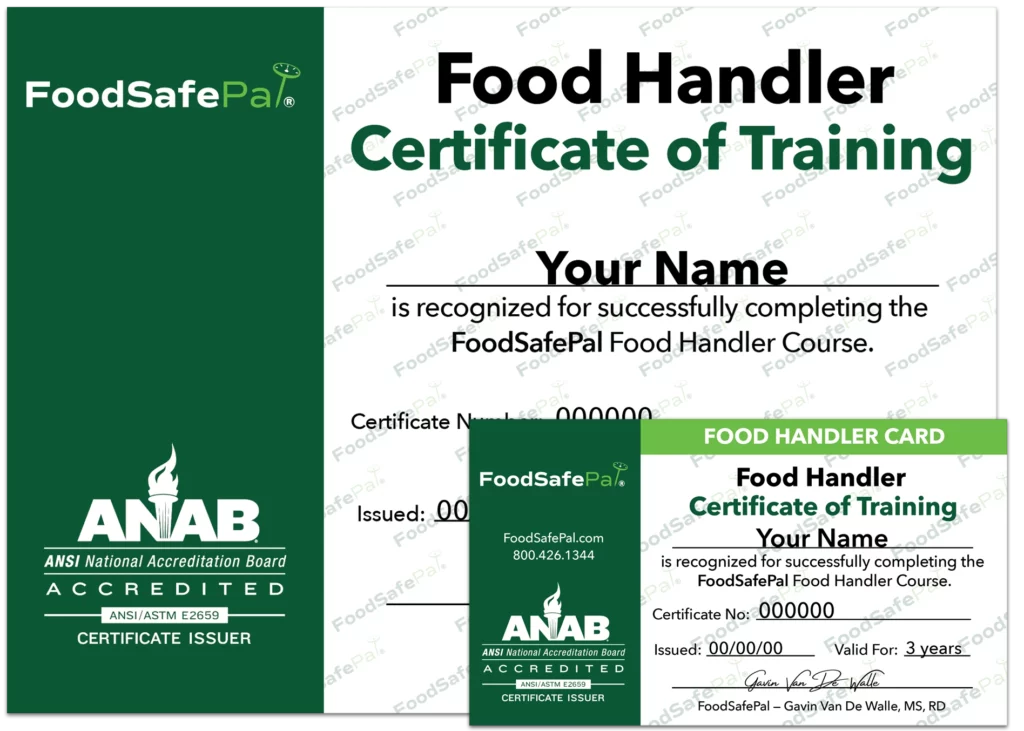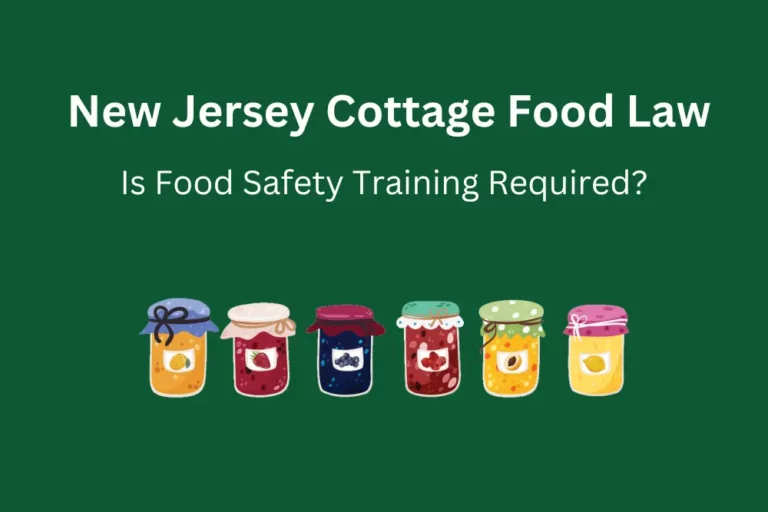Texas Cottage Food Law: Food Safety Training Requirements
Making food at home and then selling it directly to other people is known as cottage food.
Cottage food businesses have become increasingly popular as people want to know where their food comes from and who makes it.
Each state has its own cottage food laws, many of which require food safety training to start a cottage food business.
This article discusses the Texas cottage food law and whether you need food safety training to sell homemade food.

Texas cottage food production
Under the Texas cottage food law, you can operate a cottage food business and sell most foods directly to people.
Starting September 1, 2025, you can make and sell any type of food, except:
- raw milk
- low-acid canned goods
- meats and poultry (eggs are allowed)
- seafood, including all fish and shellfish
- ice or ice products, including shaved ice, ice cream, and frozen custard
- products containing cannabidiol (CBD) or tetrahydrocannabinol (THC)
Examples of commonly sold cottage foods include:
- candy
- baked goods
- roasted coffee or dry tea
- popcorn, cereal, and granola
- pickled fruits and vegetables
- fermented vegetable products
- nuts and unroasted nut butter
- plant-based acidified canned goods
- fruit butters, canned jam or jelly, and fruit pies
- dehydrated or frozen raw and cut fruits and vegetables
You can sell allowed foods directly to people in-person or online as long as the person to whom you’re selling is a Texas resident.
As of September 1, 2025, you can also sell your products through a cottage food vendors directly to people at farmers markets, farm stands, food establishments like restaurants, or any retail store.
Foods sold this way (wholesale) cannot require time or temperature controls to stay safe.
To sell these foods, they must be packaged and labeled with certain information, depending on the food.
Texas does not regulate cottage food businesses like they do food establishments, so you don’t need a permit or license, and health departments can’t inspect your cottage food production operation.
Texas limits the amount of revenue you can earn from selling homemade foods to $50,000 annually. This cap increases to $150,000 on September 1, 2025.
Summary
Under the Texas cottage food law, you can sell most foods directly to consumers. Texas doesn’t regulate cottage food production operations like food establishments, so you don’t need a license or permit.
Do you need food safety training to sell homemade food in Texas?
Texas’ cottage food law requires that you complete an accredited food handler training course so you know how to prepare and handle the foods you sell safely.
Texas recognizes ANSI-National Accreditation Board (ANAB)-accredited food handler training — such as FoodSafePal’s — to meet this food safety training requirement.
Earn Your Food Handlers Card + Certificate to Sell Cottage Foods
Finish in 90 Minutes. Meets Texas’ Cottage Food Law.

You can complete FoodSafePal’s online food handler training program in just 90 minutes.
The course covers essential food safety topics, including food hazards, good personal hygiene, handwashing, and cleaning and sanitizing procedures.
To demonstrate your knowledge on these topics, you must pass a test to earn your food handler certificate and card. You get a second try if you don’t pass the first time.
After you earn your certificate, you can print or save it as a PDF for your records as proof of the training.
While not required, it’s best practice to display your certificate at the point of sale or on your website. This reassures your customers that you understand how to safely prepare the food you sell.
Summary
Texas requires that you successfully complete an accredited food handler training program, like FoodSafePal’s, to operate a cottage food business.
Label requirements
Texas’ cottage food law requires that each food you sell be properly packaged and labeled.
The food must be packaged in a way that prevents contamination from hazards that can make people sick. The exception is food too large and bulky for conventional packaging.
The label must provide the following information:
- full name and physical home address
- the common or usual name of the product
- the presence of any of the nine major food allergens
- the statement: “This food is made in a home kitchen and is not inspected by the Department of State Health Services or a local health department.”
Under Texas law, if you’re selling time-temperature control for safety foods, you also need to put the production date on the label. Additionally, you have to include this in at least 12-point font — either on the label itself or on the invoice/receipt when it’s sold: “SAFE HANDLING INSTRUCTIONS: To prevent illness from bacteria, keep this food refrigerated or frozen until the food is prepared for consumption.”
Sellers of goods sold at wholesale must display a sign with the following statement: “THIS PRODUCT WAS PRODUCED IN A PRIVATE RESIDENCE AND IS NOT SUBJECT TO GOVERNMENTAL LICENSING OR INSPECTION.”

While you need to list the presence of allergens, you don’t need to list all ingredients your product contains, though it’s best practice when possible.
Summary
Texas’ cottage law requires that each food you sell be properly packaged and labeled. You must include certain information on the label, such as your business name and address and disclose the presence of major food allergens, among other things.
The bottom line
Cottage food businesses are becoming increasingly popular in Texas.
While the state doesn’t regulate cottage food businesses in the same way they regulate food establishments, you must successfully complete an accredited food handler training program, like the one offered by FoodSafePal.
Earn Your Food Handlers Card + Certificate to Sell Cottage Foods
Finish in 90 Minutes. Meets Texas’ Cottage Food Law.

Make sure that each food you sell is properly packaged and labeled with the required information.






